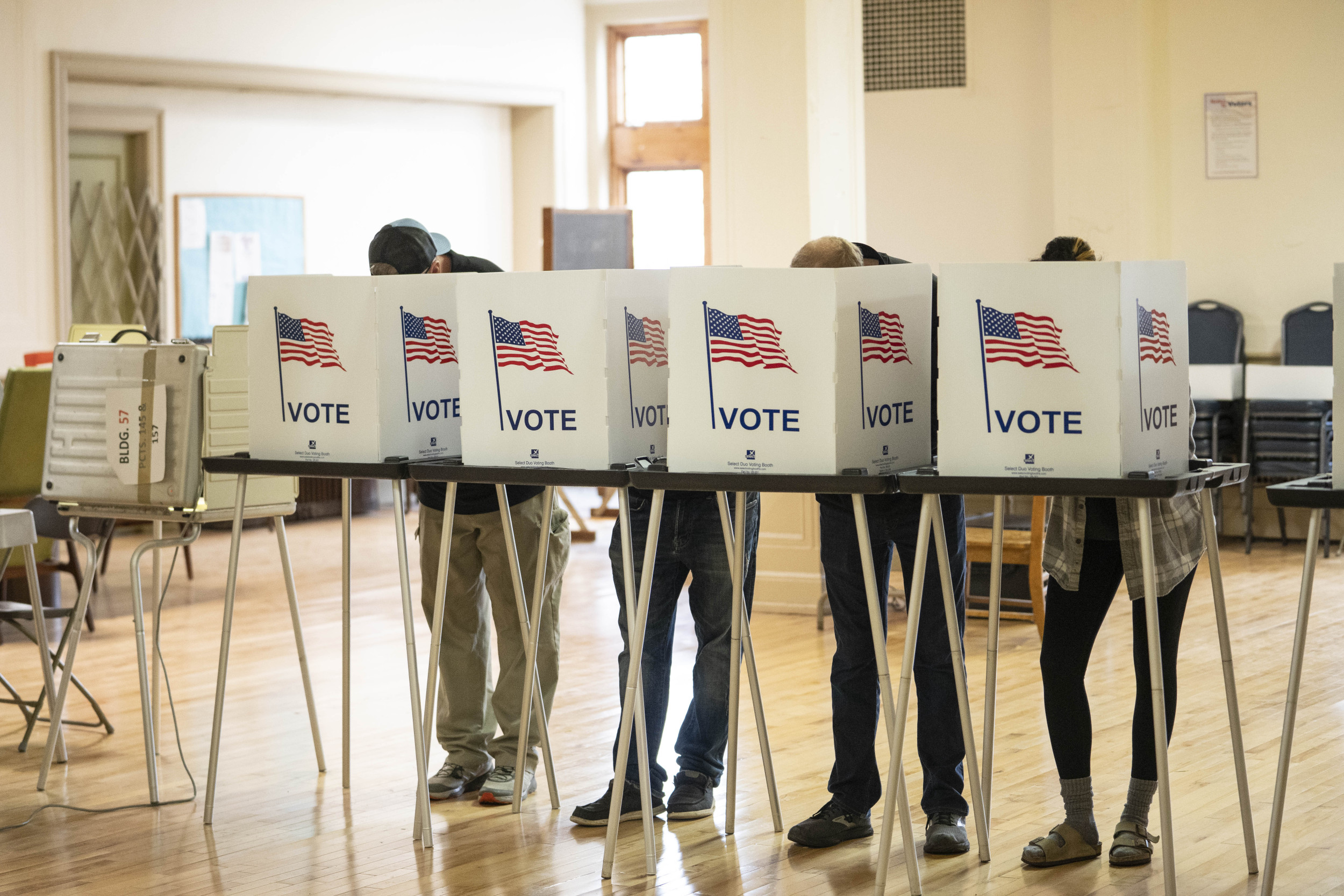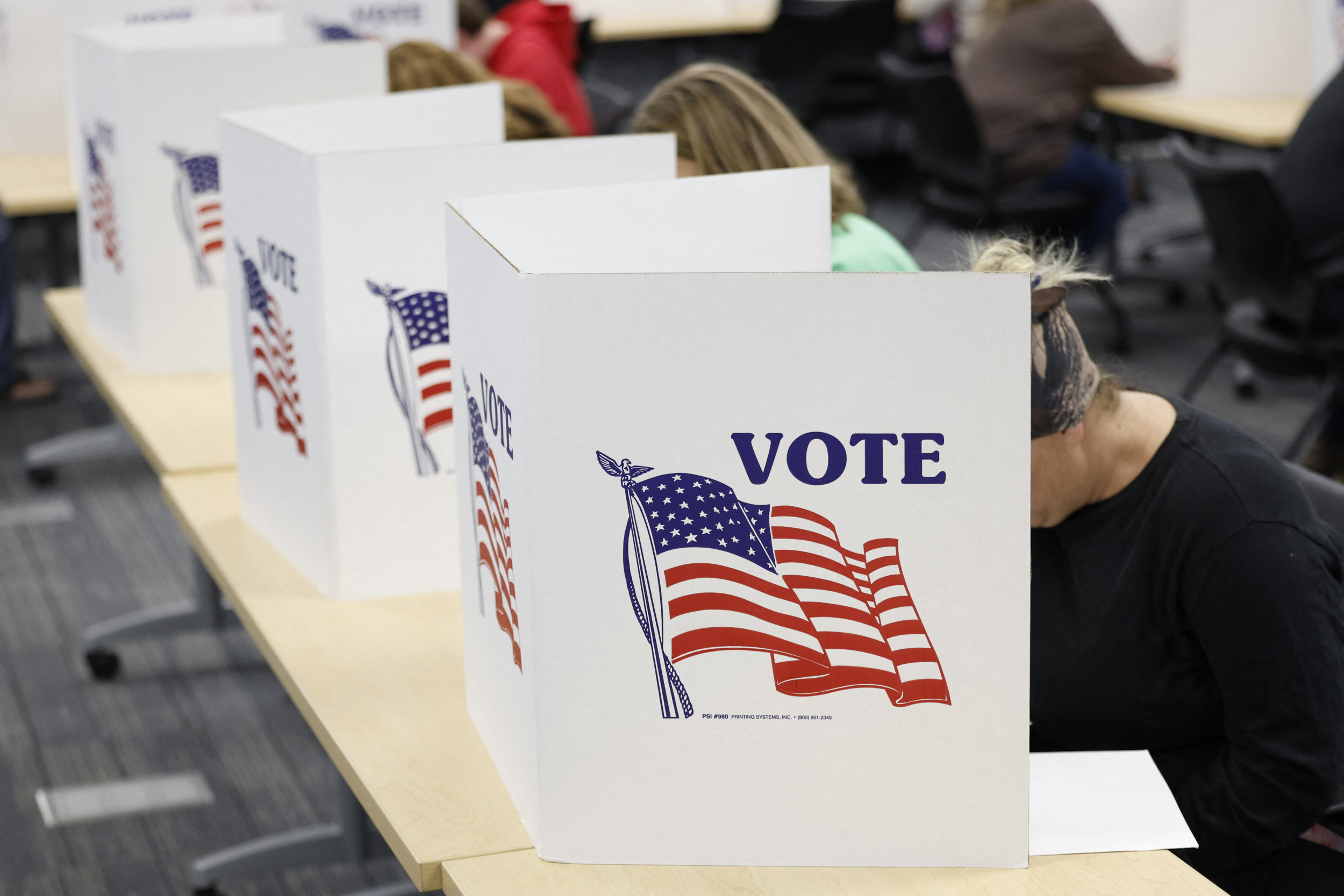Remember presidential immunity? Well, get ready for judicial immunity.
In moving to dismiss her new federal indictment, Judge Hannah Dugan cited last year’s Supreme Court ruling in Donald Trump’s favor.
“The problems with this prosecution are legion, but most immediately, the government cannot prosecute Judge Dugan because she is entitled to judicial immunity for her official acts,” the Milwaukee judge’s lawyers wrote in the motion filed Wednesday. “Immunity is not a defense to the prosecution to be determined later by a jury or court; it is an absolute bar to the prosecution at the outset,” they wrote, directly citing Trump v. United States.
Dugan’s indictment Tuesday alleges two counts: concealing a person from arrest and obstruction, for alleged actions she took as immigration agents tried to apprehend an individual in her courtroom.
Administration officials touted the judge’s arrest last month, with Attorney General Pam Bondi proclaiming: “No one is above the law.” Of course, the dissenters in Trump v. United States accused the majority of putting the president “above the law.” Now, Dugan is hoping that precedent helps her avoid the charges brought by the administration of the man who was helped by — and whose names bears — that precedent.
In her motion to dismiss, Dugan’s lawyers quote from the Trump immunity ruling, where it said, “In dividing official from unofficial conduct, courts may not inquire into the President’s motives.” They quoted that line to support the argument that her “subjective motivations are irrelevant to immunity.” They also cite the Trump immunity ruling’s quotation of a prior precedent that said the essence of immunity is the immunity possessor not having to answer for their conduct in court. “Judge Dugan therefore has both immunity from conviction and immunity from prosecution,” they wrote.
While the Trump precedent’s appearance in Dugan’s motion is notable, she doesn’t pin her entire argument to that one case. Among other points, her lawyers wrote that judicial immunity goes way back. “Since at least the early 17th century in England, and carried on through common law in the United States, judges of record have been entitled to absolute immunity for official acts with a few exceptions not applicable here,” they wrote in the dismissal motion.
And just because the Supreme Court bestowed broad presidential immunity in the Trump case, we don’t know what the justices would say if this judicial immunity issue makes it to the high court. But we might find out relatively soon. Dugan wants the issue addressed at the outset of the litigation.
“Questions about whether the President may be held liable for particular actions, consistent with the separation of powers, must be addressed at the outset of a proceeding,” Chief Justice John Roberts wrote in the Trump case.
One of the differences between Dugan’s case and Trump’s is that, if it’s an issue that will require prolonged litigation up and down the court system, we might have a better chance to learn the full extent of what judicial conduct is immune from prosecution.
In Trump’s federal election interference case, the justices sent the case back to the trial court to apply the new presidential immunity rules laid out by the high court. But that litigation was cut short due to Trump’s 2024 election win and the Justice Department’s policy against prosecuting sitting presidents. Unless Dugan assumes the presidency anytime soon, that shouldn’t be an issue here.
Subscribe to the Deadline: Legal Newsletter for expert analysis on the top legal stories of the week, including updates from the Supreme Court and developments in the Trump administration’s legal cases.
This article was originally published on MSNBC.com














